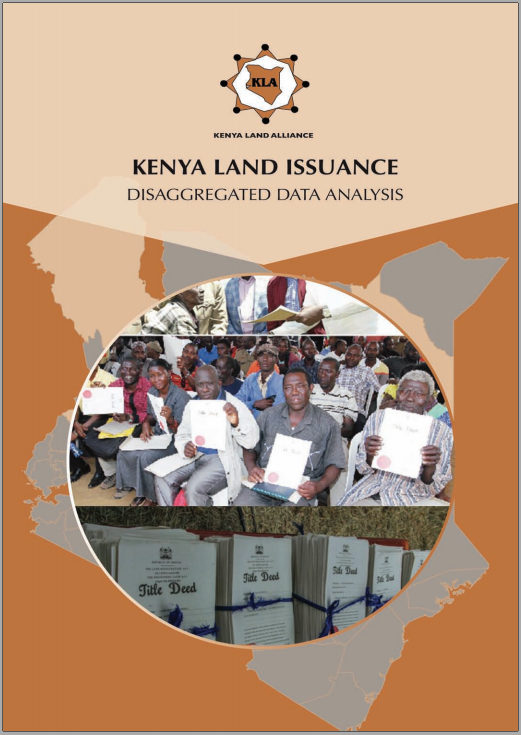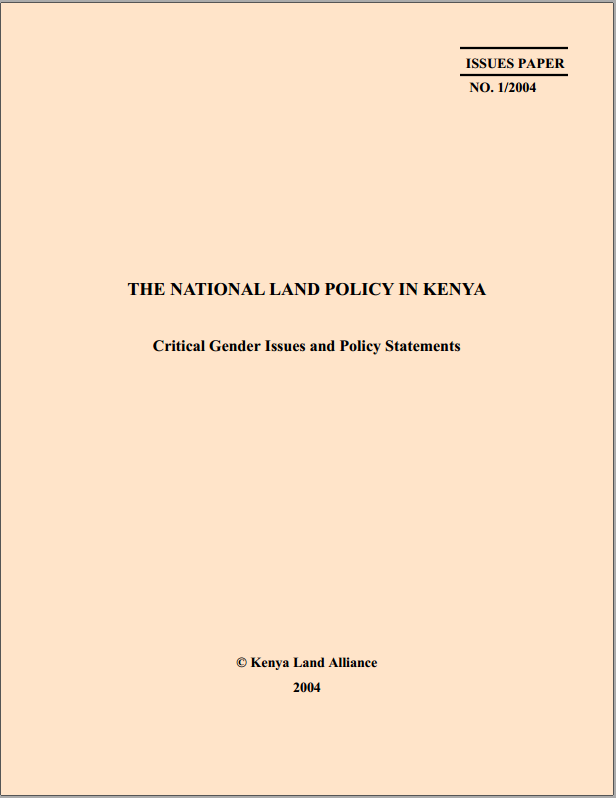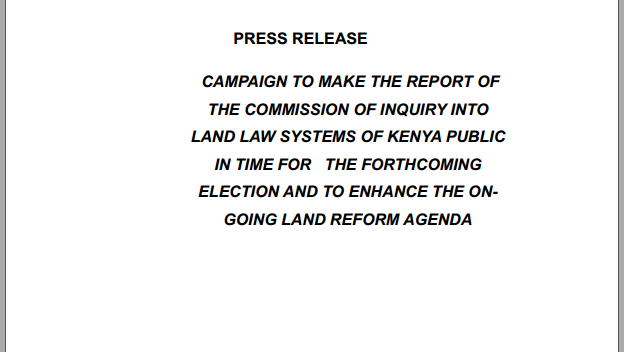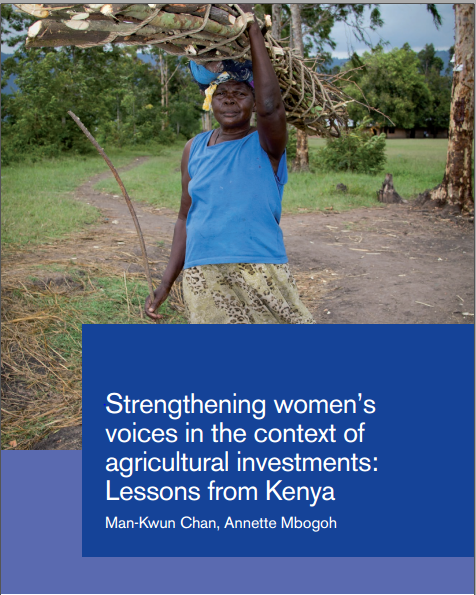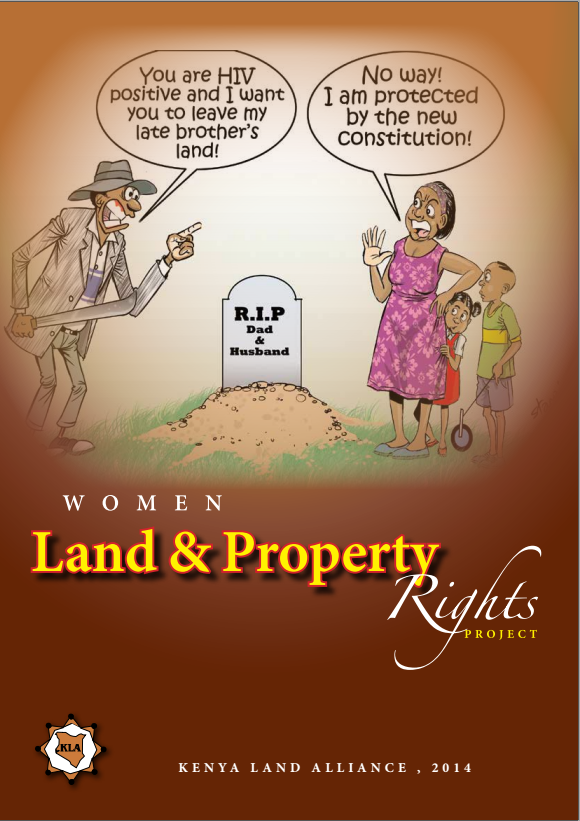The National Land Policy in Kenya Critical Public Land Issues and Policy Statements
The National Land Policy in Kenya: Critical Public Land Issues and Policy Statements is a guide to steer the debate and eventual formulation of a National Land Policy and legislative framework that will address issues of management and administration of public land in Kenya.


